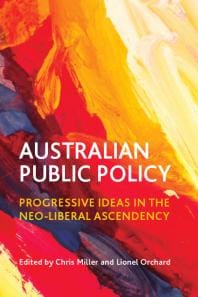Book Chapter: Politics and Government
Abstract
Are modes of public reasoning promoted by politics informative and responsive? Are the policy processes to which they give rise responding to our needs in ways that satisfy reasonable expectations of just outcomes, encourage trust and contain conflict? Is there a reasonable balance between competing interests preventing undue concentrations of resources, power and influence? These questions are examined in this chapter by focusing on contemporary practices, their effects on policy deliberation and the means of communication that inform public reasoning. We begin by considering the role of parties in the Australian political process before analysing the impact of reforms to the institutional framework of governance, especially the public service. The chapter then discusses whether a form of 'court politics' has developed in the Australian case and analyses the Gillard-led Labor Government. We conclude by addressing the apparent paradoxical divide between Australia's objective position and its public culture. All of these factors, however, must be interpreted in the context of the 'historical moment' in which we find ourselves.
